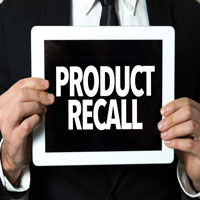 Research conducted by a team from Indiana University, University of Wisconsin, and University of Minnesota considered the impact of inspection rotations on recalls. The team looked at seven years of data in conducting the study, examining medical device recalls from over two thousand U.S. manufacturers.
Research conducted by a team from Indiana University, University of Wisconsin, and University of Minnesota considered the impact of inspection rotations on recalls. The team looked at seven years of data in conducting the study, examining medical device recalls from over two thousand U.S. manufacturers.
The research team sought to understand the impact of regulatory inspectors in the quality of manufactured goods. Their results could lead to changes in the way the FDA and other regulatory bodies conduct recall investigations.
The findings raised two important questions – first, is their conclusion correct or is there an alternate explanation for the findings? Second, if their conclusion is incorrect and the FDA adopts their recommendation, how may it impact defective medical device recalls?
The team studied 2,863 recalls of defective medical devices in 2,244 factories. The focus of the study was the inspection outcomes which affected the recalls. In all, they examined 4,767 FDA inspections to understand what impact the investigations had on recalls.
The data indicated that with a second visit, recall rates increased 21 percent and 57 percent after a third visit. The more frequently a plant inspector visits a factory, the more familiar he or she becomes with plant management. The team concluded that the increased familiarity leads to a relaxing of standards causing more recalls.
Next, the team tested two viable solutions. The data indicated that by rotating the frequency of visits among inspectors, a 20 percent decrease in recalls would occur.
With the conclusion and tested solutions in mind, the team recommended that the Food and Drug Administration rotate inspectors so that they never visit a factory a second time or if they do, they avoid sequential visits.
The conclusion drawn in this study could be correct, but implementing it in the real world is the only way to know for certain. If the conclusion drawn is incorrect, it could be reasoned that recalls go up with additional inspections because as inspectors become more familiar with a process, they find more problems. However, because they have developed a relationship with management, rather than hit them with a violation, they allow management to impose a voluntary recall. If this conclusion is correct, changing the system could lead to more product malfunctions despite reduced recall rates. A lack of recall does not necessarily equate to better products.
Regardless of whether the FDA makes changes or not, the Philadelphia defective medical device lawyers at Brookman, Rosenberg, Brown & Sandler help victims of flawed products. To schedule a free and confidential consultation call 800-369-0899 or contact us online. We serve clients in the Philadelphia and New Jersey region.